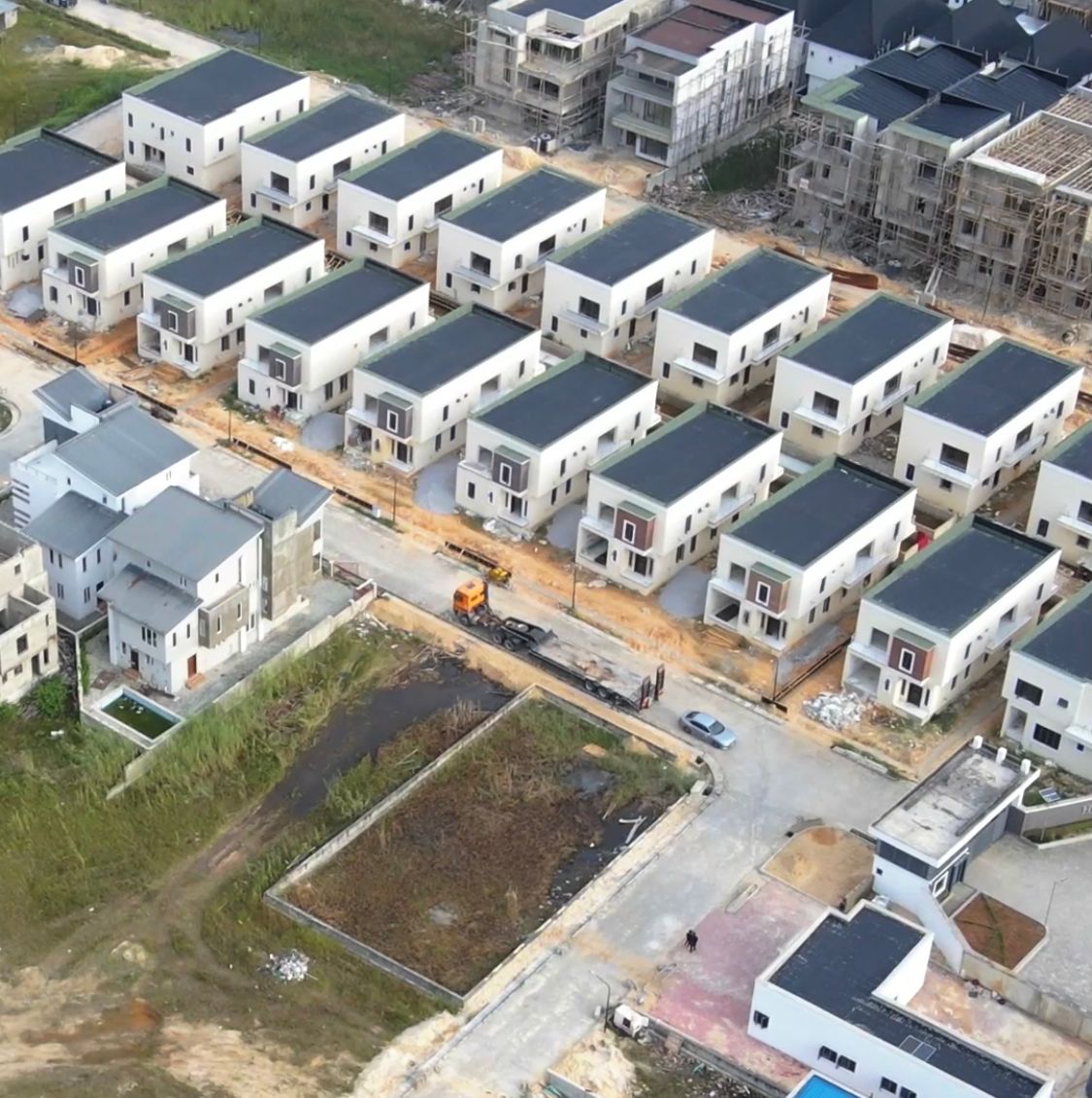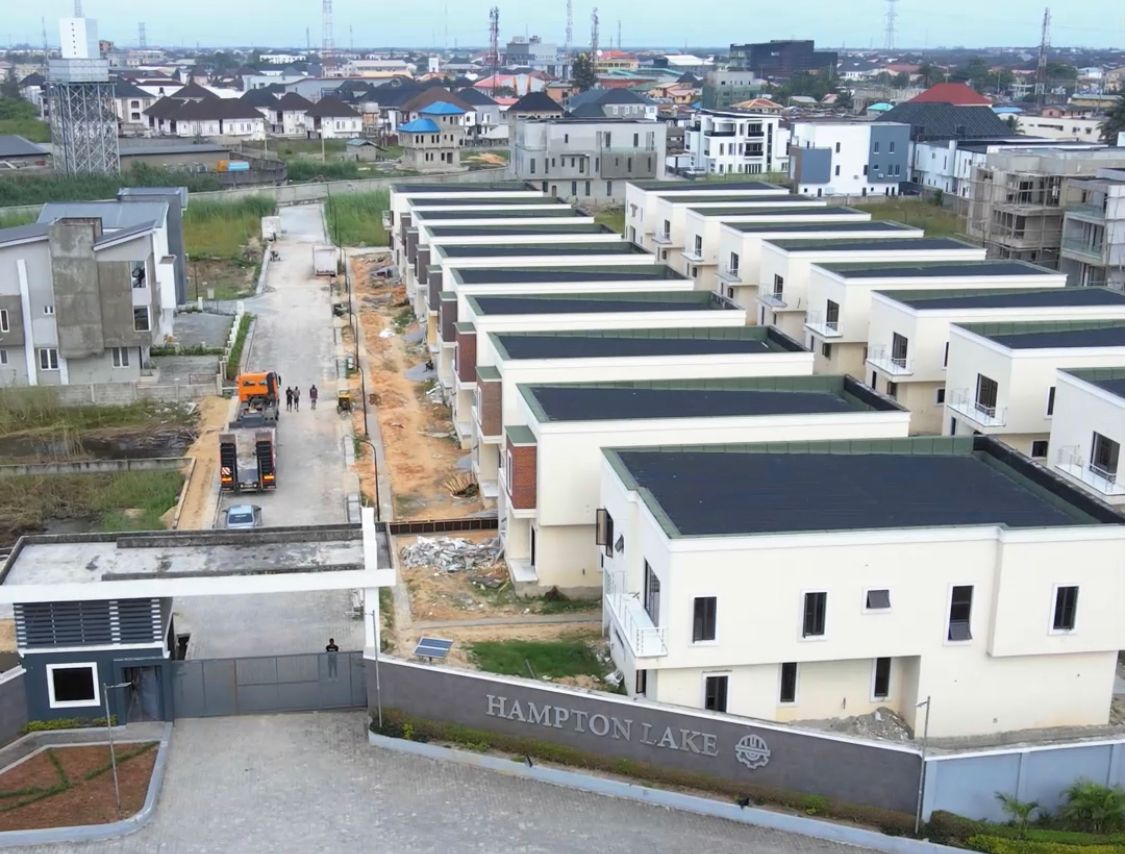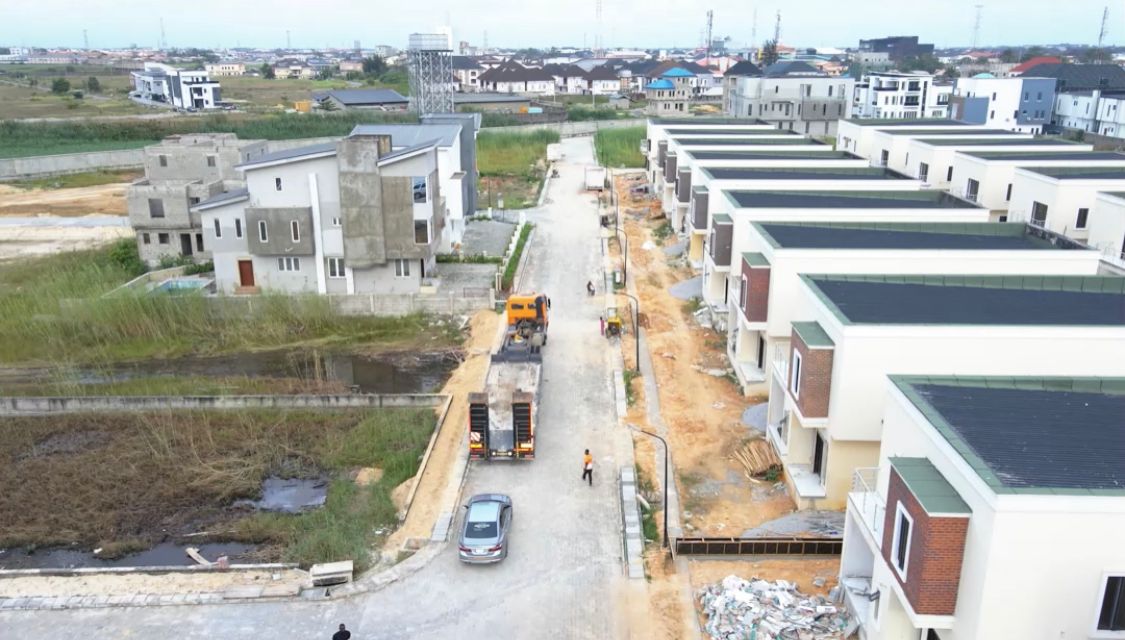The cost of building materials can have a significant impact on the real estate market in Nigeria. Here are a few ways in which it can affect the industry:
1. Construction Costs: When the cost of building materials increases, the overall construction costs also rise. This can make it more expensive to develop new real estate projects, leading to higher property prices. Developers may pass on these increased costs to home buyers, resulting in higher purchase prices for both residential and commercial properties.
2. Affordability: The rising cost of building materials can significantly impact affordability for potential home buyers. As construction costs increase, the prices of newly built homes also tend to rise. This can make it more challenging for many Nigerians to purchase properties, leading to a slowdown in the real estate market.
3. Rental Prices: When construction costs are high, developers may opt to increase rental prices to cover their expenses and achieve a return on investment. This can result in increased rental costs for both residential and commercial properties.
4. Housing Supply: Higher building material costs can make it less attractive for developers to build new properties. This can lead to a decrease in housing supply, particularly in regions where affordability is already a concern. Reduced supply can further drive up property prices, making it even more challenging for individuals and businesses to afford real estate.
5. Economic Impact: The real estate industry is a significant contributor to the Nigerian economy. When the cost of building materials increases, it can adversely impact construction activity and hinder economic growth. This can result in reduced job opportunities in the construction sector and a slowdown in related industries, affecting the overall economy.
It’s important to note that factors such as currency devaluation, inflation, government policies, and global market trends can also influence the cost of building materials and its impact on the real estate industry in Nigeria.
When it comes to purchasing a home, appearances can be deceiving. That’s why home inspections are a crucial step in the process. A comprehensive home inspection can provide you with valuable insights into the condition of the property you are considering. In this article, we delve into the significance of home inspections, exploring the hidden issues they uncover, safety concerns they address, budgeting benefits they offer, and the peace of mind they bring to potential home buyers. Let’s dive in and discover why home inspections are an essential part of the home-buying journey.
Uncovering Hidden Issues:
Beyond the surface-level appeal of a home, there may lurk hidden issues that only a professional home inspector can uncover. From plumbing and electrical problems to roof leaks, mold growth, and foundation issues, these hidden issues can significantly impact the value and livability of a property. A thorough home inspection sheds light on these potential pitfalls, ensuring that you have a complete understanding of the home’s condition before making a purchase decision.
Addressing Safety Concerns:
Home inspections go beyond cosmetic evaluations; they also focus on identifying potential safety hazards. Trained home inspection professionals have the expertise to detect fire or electrocution risks, faulty wiring, outdated electrical panels, and other safety concerns that may compromise the well-being of you and your family. By addressing these issues early on, you can ensure a safe living environment for your loved ones.
Budgeting for Repairs and Replacements:
One of the significant advantages of a home inspection is the insight it provides into the home’s repair and replacement needs. The inspection report outlines areas that require attention, allowing you to budget accordingly. Armed with this information, you are in a better position to negotiate the purchase price, factor in repair costs, and avoid unexpected financial burdens down the road. A home inspection empowers you to make informed decisions and plan for future expenditures.
Early Warning of Future Maintenance Issues:
In addition to existing problems, a home inspection can also provide early warnings of potential maintenance issues that may arise in the future. By identifying areas that may require attention or repairs in the coming years, such as aging HVAC systems, deteriorating roofs, or outdated plumbing, you can proactively plan for these expenses and allocate funds accordingly. This proactive approach not only saves you from unexpected financial strain but also helps you maintain the long-term value and integrity of your investment.
Peace of Mind for Home Buyers:
Perhaps one of the most significant benefits of a home inspection is the peace of mind it offers to potential home buyers. Investing in a property is a major decision, and having a thorough understanding of its condition can alleviate anxieties and uncertainties. A comprehensive home inspection report provides assurance that the home you are considering is in good condition, free from major issues, and safe for you and your family. This peace of mind allows you to move forward with confidence in your purchase.
Conclusion:
Home inspections are a vital step in the home buying process, offering valuable insights into the true condition of a property. From uncovering hidden issues and addressing safety concerns to budgeting for repairs and replacements, home inspections empower buyers to make informed decisions. By providing early warnings of future maintenance issues and offering peace of mind, home inspections ensure that your investment is well-protected and that you are equipped to maintain and enjoy your dream home for years to come. So, before you sign on the dotted line, remember the importance of a thorough home inspection to unveil the secrets of your future home.
Nigeria, one of Africa’s largest economies, recently discontinued fuel subsidies, a policy shift with wide-ranging implications for various sectors. In this article, we will delve into the merits and demerits of Nigeria’s decision to end fuel subsidies and how it may impact the real estate investment landscape.
Pros
- Economic Stability and Fiscal Responsibility: By eliminating fuel subsidies, the Nigerian government aims to achieve economic stability and reduce budget deficits. This move can attract domestic and foreign investors to the real estate market, as it signals responsible governance and financial prudence.
- Infrastructure Development: With the redirection of funds previously allocated to fuel subsidies, Nigeria can invest more in infrastructure development. Improved road networks, public transportation, and utilities will enhance the attractiveness of real estate investments, particularly in well-connected areas, leading to increased property values.
- Sustainable Investment Opportunities: The discontinuation of fuel subsidies aligns with global efforts to transition to sustainable and greener energy sources. Real estate investors can explore environmentally-friendly projects, such as energy-efficient buildings, renewable energy installations, and sustainable communities. These investments not only contribute to a greener future but also appeal to eco-conscious buyers and tenants.
Cons:
- Increased Transportation Costs: The removal of fuel subsidies may result in higher transportation costs, which can indirectly impact the rental market. Landlords may need to consider these increased expenses when determining rental prices. This change could potentially affect affordability for tenants and necessitate the reassessment of rental pricing strategies.
- Market Volatility and Uncertainty: The discontinuation of fuel subsidies introduces an element of market volatility and uncertainty. Fluctuations in transportation costs, potential inflationary pressures, or socio-political ramifications can impact the real estate investment landscape. Investors must carefully assess these risks and adapt their strategies accordingly.
- Potential Inflationary Pressures: Fuel subsidies have historically contributed to inflationary pressures. While their removal aims to stabilize the economy, it is essential to monitor the potential impact on overall inflation rates. Higher inflation could lead to increased construction costs, affecting real estate development and investment profitability.
Conclusion
The discontinuation of fuel subsidies in Nigeria carries both merits and demerits for real estate investment. It offers opportunities for economic stability, infrastructure development, and sustainable investments. However, challenges such as increased transportation costs, market volatility, and potential inflationary pressures must be considered. As real estate investors navigate this evolving landscape, thorough research, risk assessment, and adaptation to changing market conditions remain crucial for successful investments.
There are several benefits to hiring a real estate agent when buying or selling a home. Hiring a real estate agent can make the process of buying or selling a home more efficient, effective, and stress-free. A real estate agent has the knowledge and expertise to navigate the complicated process of buying or selling a home. They can help you understand the market, evaluate properties, and negotiate contracts.
Real estate agents have access to various resources, including industry databases and listing services, which can help them find the right property for you or market your property to potential buyers.
A real estate agent can save you time by doing the legwork for you. They can identify properties that meet your criteria and arrange showings, freeing up your time to focus on other tasks.
Real estate agents are skilled negotiators and can help you get the best deal when buying or selling a home. They know how to handle counter-offers, handle inspections, and repairs, and manage all the paperwork and legal requirements. Real estate agents have a professional network of industry contacts, including mortgage brokers, home inspectors, and contractors. They can recommend trusted professionals to help with the buying or selling process.
The process of buying or selling a home can involve a significant amount of paperwork. A real estate agent can help you navigate the paperwork, ensuring that all necessary documents are properly completed and submitted on time.
Real estate agents are experts in their local market and have a deep understanding of local trends, prices, and neighborhoods. They can offer valuable insights into the state of the market and help you make informed decisions about your real estate investment.
Real estate agents are unbiased and can provide objective advice on pricing, marketing, and negotiations. They can offer a fresh perspective and help you avoid emotional decisions that may not be in your best interests. Real estate agents can provide personalized service tailored to your specific needs and preferences. They can help you identify properties that meet your criteria and narrow down your search to find your dream home.
Real estate agents are bound by professional standards and ethics that protect their clients. They can help you avoid scams and fraud, and ensure that all transactions are conducted fairly and legally.
Buying or selling a home can be a stressful and emotional process. Real estate agents can help you manage stress by handling the details of the transaction and keeping you informed every step of the way. Real estate agents can provide support even after the sale is complete. They can help with relocation, finding contractors, and other services that may be needed to settle into your new home.
A penthouse is a type of residential apartment or unit that is located on the top floor or floors of a tall building, typically a high-rise. Penthouses are usually luxurious and spacious, offering private living experiences along with amazing views of the surrounding area. They are typically larger than standard apartments and often feature expansive terraces, outdoor gardens, and top-of-the-line amenities such as private elevators, swimming pools, and designer finishes. Due to their exclusivity and premium amenities, penthouses are often associated with luxury and status. In Nigeria, penthouses are also luxury residential apartments or units located on the top floors of tall buildings such as hotels, condominiums, or high-rise towers. They are known for their exclusivity, elegance, and top-notch amenities.
Many penthouses in Nigeria are designed with spacious layouts that often accommodate multiple living areas, dining rooms, and bedrooms. They are usually equipped with high-end appliances, premium finishes, and fittings, such as top-quality flooring, home automation systems, large windows, and expansive balconies that provide panoramic views of the surrounding areas.
Penthouses in Nigeria are usually found in affluent areas such as Victoria Island, Ikoyi, and Lekki in Lagos, and many of them are owned by wealthy business executives, diplomats, and celebrities. They typically come with a high price tag, making them some of the most expensive real estate properties in the country.
Penthouses have always been considered a symbol of luxury and exclusivity, but they are not just for the wealthy and elite anymore. With the global real estate market booming, investing in a penthouse can offer a unique set of benefits and opportunities. Here are some reasons why you should consider investing in penthouses:
1. High Rental Yield
Penthouse apartments are typically rented out at higher rates than other types of apartments due to their luxurious features, amenities, and breathtaking views. The high demand for penthouse apartments in popular cities like New York, London, and Hong Kong means there is always someone willing to pay a premium price for a luxury apartment. As an investor, such a high rental yield can help secure stable cash flow and consistent returns on investment.
2. Appreciation Potential
Penthouses are generally a lucrative investment opportunity as their value appreciates over time. Most penthouse units are located in prime locations within cities, giving them an edge over regular apartments. As the cities develop, penthouse apartments become even more valuable. For instance, as major cities continue to attract new businesses and urban development, the property values rise significantly, giving investors great returns on investment.
3. Unique Amenities
Penthouses typically come with bespoke amenities that are tailored to a more luxurious lifestyle. Notably, amenities like indoor spas, fitness centers, rooftop gardens, and panoramic city views are some of the features that cater to luxury living. These amenities can be marketed to high-end renters, making properties more attractive within the rental market.
4. Low Maintenance
Since most penthouses are managed by a homeowner association, they require minimal maintenance responsibility for the owner. The landscape, exterior maintenance, and security are usually taken care of, freeing up the owner from headaches that come with managing such matters themselves. This benefit allows the owner to focus on enjoying the benefits of his/her investment.
5. Investment portfolio diversification
Investing in penthouses is an excellent way to diversify investment portfolios. Since property prices and returns do not always move in sync with financial markets, adding property assets to an investment portfolio provides an opportunity for stable returns regardless of market fluctuations.
The Bottom Line
Penthouses apartments offer a unique investment opportunity for individuals looking to diversify their investment portfolios. These properties typically provide high rental yields, bespoke amenities, low maintenance, appreciation potential, and are ideal for investors looking to invest in exclusive locations. Nonetheless, before investing in a penthouse property, buyers should conduct proper due diligence and analysis to ensure the property’s overall investment potential aligns with their investment objectives.




